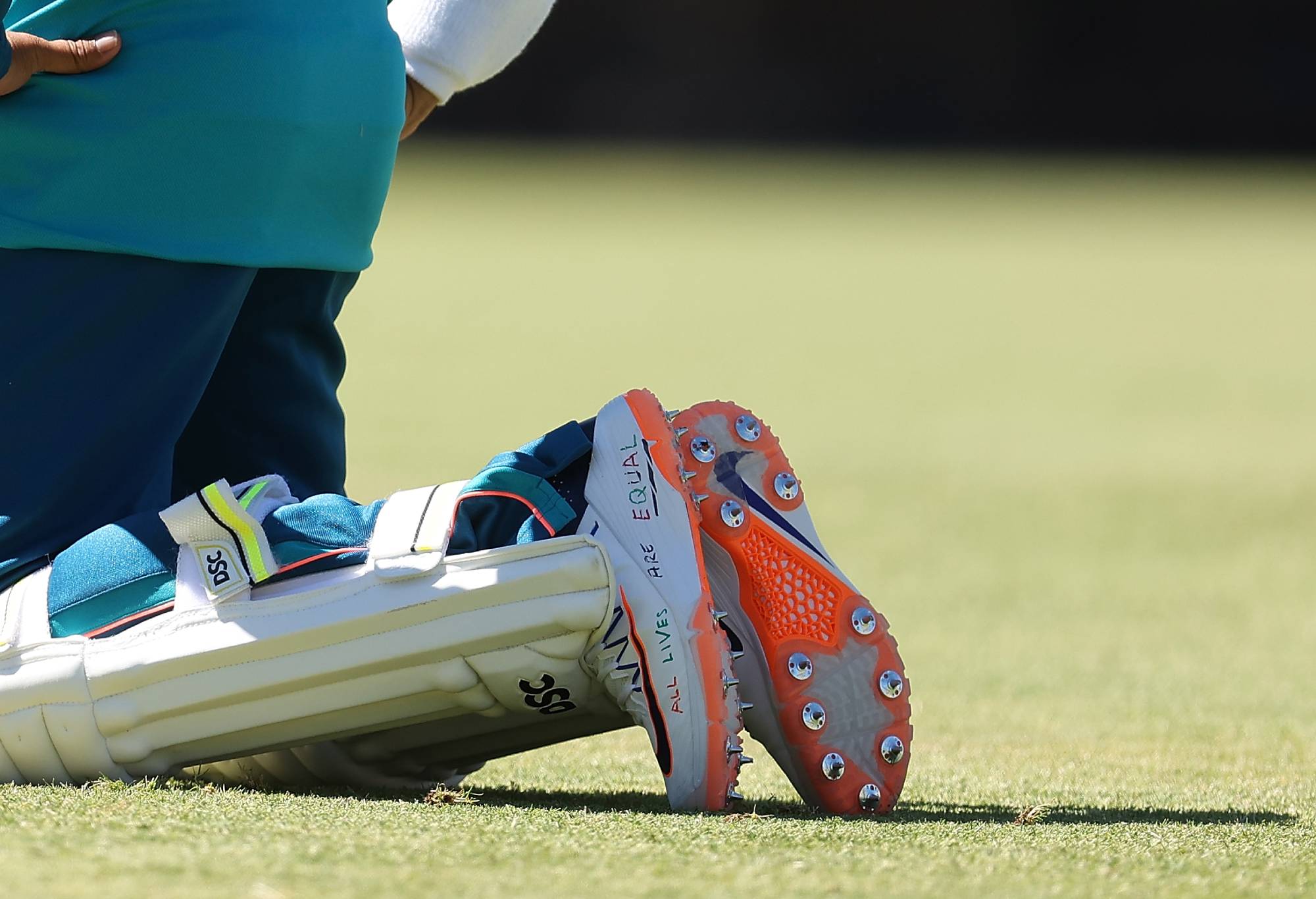Khawaja ‘poised’ to make anti-war statement in Perth Test, risking ICC sanction

Usman Khawaja risks possible ICC reprimand or sanction over messages written on his cricket shoes.
The Pakistan-born Australian wore shoes at training on Tuesday with the messages “Freedom is a human right” and “All lives are equal”.
“The leading Test batter in the world over the past two years and a proud Muslim, Khawaja has been deeply affected by the distressing scenes emanating from Gaza since the October 7 Hamas attacks that resulted in Israeli retaliation, often sharing videos and photos from the conflict on social media.”
The Muslim cricketer has made his thoughts clear on the Israel-Hamas war, posting a message on Instgram last week.
“Do people not care about innocent humans being killed? Or is it the colour of their skin that makes them less important? Or the religion they practice? These things should be irrelevant if you truly believe that ‘we are all equal’. #gaza #humanity #equality #alllivesmatter,” Khawaja wrote.
In 2014, England spinner Moeen Ali was reprimanded for wearing wristbands with the messages “Save Gaza” and “Free Palestine” written on them.
Usman Khawaja’s cricket boots. (Photo by Paul Kane/Getty Images)
“The ICC equipment and clothing regulations do not permit the display of messages that relate to political, religious or racial activities or causes during an international match,” the ICC said.
“Moeen Ali was told by the match referee that whilst he is free to express his views on such causes away from the cricket field, he is not permitted to wear the wristbands on the field of play and warned not to wear the bands again during an international match.”
The ICC rules on such matters are as follows.
CC clothing and equipment regulations
Players and team officials shall not be permitted to wear, display or otherwise convey personal messages on their clothing, equipment or otherwise, irrespective of whether such messages are affixed to clothing, equipment or otherwise and whether such messages are displayed or conveyed through the use of the specific clothing or other items (e.g. an arm band) or by the use of words, symbol, graphic message, images or otherwise (“Personal Messages”), unless approved in advance by both the player or team official’s Board and the ICC Cricket Operations Department.
Approval shall not be granted for messages which relate to political, religious or racial activities or causes. The ICC shall have the final say in determining whether any such message is approved. For the avoidance of doubt, where a message is approved by the player or team official’s Board but subsequently disapproved by the ICC’s Cricket Operations Department, the player or team official shall not be permitted to wear, display or otherwise convey such message in International Matches.
Guidance note
In determining whether a message is for a “political, religious or racial cause”, the starting point is that the ICC and its Members acknowledge and agree that cricket should be used as a tool to bring people and communities around the world together and not as a platform to draw attention to potentially divisive political issues, rhetoric or agendas.
Each case must be considered on its own facts and the ICC will take into account all relevant circumstances, including (as it sees fit): (a) the views of any other relevant team or individual; (b) the likely sentiment and response in the media to the message in all relevant countries; (c) whether the message is a ‘one-off’ or whether it is to be displayed for a longer period; (d) the purpose and impact of conveying the message.
By way of example only, and without limitation, where the purpose of a message appears to be commemorative in nature (e.g. the use of a black armband or a poppy) or to serve a charitable purpose (e.g. to generate funds or awareness for a non-political charitable cause), it is more likely to be permitted; where a message appears to indicate support for a particular government, political party or individual, it is more likely to be prohibited. Where a request for approval is submitted to the ICC, the ICC shall be entitled to request such further information as it considers necessary before making its decision and to impose such conditions as it sees fit in providing its approval.
